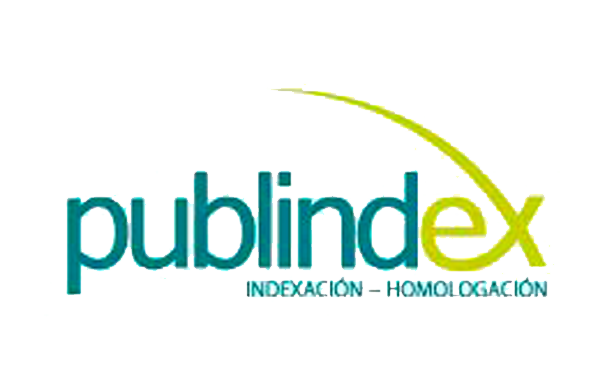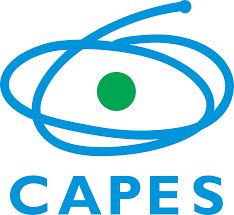Right to Knowledge of the Accusation, Guarantee to a Court Interpreter and Application of Translation Software in Procedural Acts
Copyright (c) 2022 Opinión Jurídica

This work is licensed under a Creative Commons Attribution-NonCommercial-NoDerivatives 4.0 International License.
- Articles
- Submitted: August 12, 2021
-
Published: March 8, 2022
Abstract
The article discusses the challenges of language as a means of communication, especially regarding legal expressions, and the difficulties faced by a person who is bound to answer a legal procedure in a language not known to him. Also presents the position of interpreters, the court translation professionals, and the importance of translation effectiveness as right within the due process of law. Further on, the text approaches the hypothesis of replacing the court translators for applications that convert written language. The effectiveness of such technology is confronted against the right of defendants in a criminal lawsuit to understand the procedure, as to fulfill their human rights recognized in the Constitution and the American Convention on Human Rights. The methodologies for this article are bibliographical research, analysis of legislation and review of jurisprudence, which resulted in the perception of a relevant disparity between the desired effectiveness of the examined judicial guarantee and the questionable accuracy of automated methods of translation applied during judicial procedures.
References
- Brasil. (1992, 6 de novembro). Decreto n.º 678. Promulga a Convenção Americana sobre Direitos Humanos (Pacto de São José da Costa Rica), de 22 de novembro de 1969. Diário Oficial da União de 9.11.1992. http://www.planalto.gov.br/ccivil_03/decreto/d0678.htm
- Brasil. (2002, 8 de novembro). Decreto n.º 4.463. Promulga a Declaração de Reconhecimento da Competência Obrigatória da Corte Interamericana de Direitos Humanos, sob reserva de reciprocidade, em consonância com o art. 62 da Convenção Americana sobre Direitos Humanos (Pacto de São José), de 22 de novembro de 1969. Diário Oficial da União de 11.11.2002. http://www.planalto.gov.br/ccivil_03/decreto/2002/d4463.htm
- Brasil. (2004, 30 de dezembro). Emenda Constitucional n.º 45. Diário Oficial da União de 31.12.2004. http://www.planalto.gov.br/ccivil_03/constituicao/emendas/emc/emc45.htm
- Brasil. (2013, 18 de dezembro). Resolução n. 185 do Conselho Nacional de Justiça. Diário da Justiça Eletrônico de 20.12.2013. https://atos.cnj.jus.br/atos/detalhar/1933
- Brasil. (2016, 20 de abril). Expediente Administrativo da Corregedoria Regional da Justiça Federal da 3ª Região n.º 2011.01.0218. Consolidação Normativa da Corregedoria-Geral da Justiça Federal (COGE). http://web.trf3.jus.br/noticias/Noticiar/ExibirNoticia/339362-google-tradutor-pode-ser-utilizado-paratraduzir-sentenca
- Carvalho, C. A., & Dias, M. C. P. (1998). Tradução automática: uma ferramenta de auxílio ao tradutor. Cadernos de tradução da Universidade Federal de Santa Catarina 1(3), 369-390.
- Comissão Interamericana de Direitos Humanos. (1969, 22 de novembro). Convenção Americana sobre Direitos Humanos. https://www.cidh.oas.org/basicos/portugues/c.convencao_americana.htm
- Comissão Interamericana de Direitos Humanos. (1979, outubro). Estatuto da Corte Interamericana de Direitos Humanos. https://www.cidh.oas.org/basicos/portugues/v.estatuto.corte.htm
- Corte Interamericana de Direitos Humanos. (2009, 26 de março). Caso 11.552 Gomes Lund y otros (“Guerrilha do Araguaia”) Vs. Brasil. https://www.corteidh.or.cr/CF/jurisprudencia2/ficha_tecnica.cfm?nId_Ficha=342
- Corte Interamericana de Direitos Humanos. (2016, 22 de abril). Caso 12.879 Vladimir Herzog e outros Vs. Brasil. https://www.corteidh.or.cr/docs/casos/articulos/seriec_353_por.pdf
- Costa, J. F. (2010). Direito Penal e Globalização Reflexões não locais e pouco globais. Coimbra Editora.
- Cronin, M. (2013). A era da tradução: tecnologia, tradução e diferença. Em R. F. Blume & P. Peterle (orgs.), Tradução e relações de poder (pp. 193-222). Copiart.
- Gervasoni, T. A., & Gervasoni, T. A. (2020). As condenações do Estado brasileiro pela Corte Interamericana de Direitos Humanos e suas repercussões na ordem jurídica interna. Revista Videre 12(24), 301-319.
- Hale, S. (2001). The complexities of the bilingual courtroom. Law Society Journal: the official journal of the Law Society of New South Wales, 39(6), 68-72.
- Harrison, C. J. The Spread of English. (2005). Université de La Rochelle. https://www.academia.edu/6200679/The_Spread_Of_English
- Langer, M. (2017). Dos transplantes jurídicos às traduções jurídicas: a globalização do plea bargaining e a tese da americanização do processo penal. Delictae revista de estudos interdisciplinares sobre o delito, 2(3), 19 - 115.
- Lopes Junior, A. (2020). Direito Processual penal (17 ed.). Saraiva.
- Lucchesi, G. B. (2016, 13 de junho). Traduttore, traditore: a crença ingênua do TRF-3 no Google Tradutor. Consultor Jurídico. https://www.conjur.com.br/2016-jun-13/direito-civil-atual-traduttore-traditorecrenca-ingenua-trf-google-tradutor
- Martins, R. (2011). O pecado original da linguística computacional. ALFA: Revista de Linguística, 55(1).
- Organização das Nações Unidas (ONU). (1948, 10 de dezembro). Declaração Universal dos Direitos Humanos. https://declaracao1948.com.br/declaracao-universal/declaracao-direitos-humanos/
- Pessoa, F. (1982). Livro do desassossego. Brasiliense.
- Piovesan, F., Fachin, M. & Mazzuoli, V. O. (2019). Comentários à Convenção Americana sobre Direitos Humanos. Forense.
- Serrano, P. E. A. P. (2020). Autoritarismo Líquido e as Novas Modalidades de Prática de Exceção no Século XXI. THEMIS: Revista da Esmec, 18(1), 197-223.
- Scavino, D. (2014). A Filosofia atual: pensar sem certezas. Noeses.
- Steiner, C. & Fuchs, M. C. (2019). Convención Americana sobre Derechos Humanos comentada. Fundación Konrad Adenauer.
- Tavares, A. R. (2013). Curso de direito constitucional (11 ed.). Saraiva.
- Vieira, R. S. (2009). Direito ao intérprete e ao tradutor como corolário do justo processo penal. Revista brasileira de ciências criminais (77), 141-174.
- Wahler, M. E. (2018). A word is worth a thousand words: Legal implications of relying on machine translation technology. Stetson L. Rev. 48, 109-139.
- Zaffaroni, E. R. (2019). O inimigo no Direito penal. Revan.















